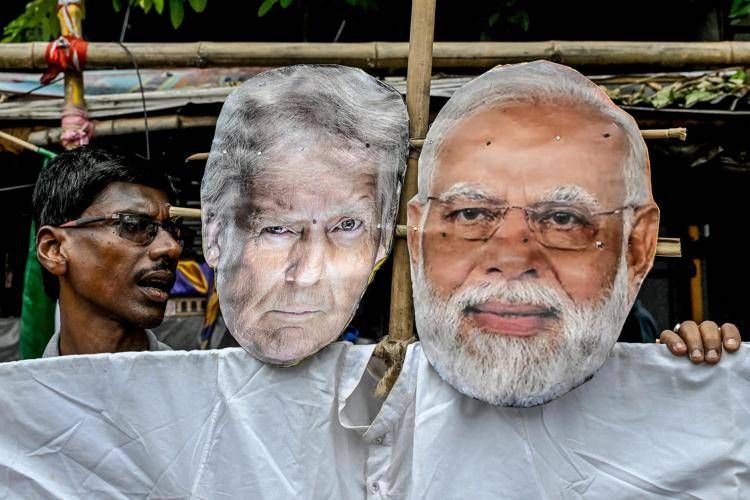
India ready to rebuild ties with China after Trump’s tariffs
Tension between the US and India: Delhi responds with a geopolitical move that distances Washington and brings Beijing closer
In 2016, Jean-Claude Juncker said it in no uncertain terms: with Donald Trump, two years would be lost. A prediction that seems to be coming true today, as Europe — led by Ursula von der Leyen — has chosen to strike an unequal deal with the US on tariffs at the Scottish resort of Turnberry. India’s reaction has been different, deciding to respond firmly to pressure from Washington.
50% tariffs and the shadow of Russia
Trump raised tariffs on Indian imports to 50%, accusing New Delhi of continuing to buy Russian oil, indirectly financing the war against Ukraine. This hard line risks backfiring on Washington. In response, India announced a visit by Prime Minister Narendra Modi to China, for the first time since 2017.
SCO summit in Tianjin: a new chapter with Beijing
Modi’s trip will take place on the occasion of the Shanghai Cooperation Organization summit, scheduled for August 31 in Tianjin. According to the Indian press, this represents a clear geopolitical signal of detachment from the United States and a pragmatic rapprochement with China, with which India shares a border of over 3,300 km, the scene of armed clashes in recent years.
Delhi does not bow down: colonial attitudes from Washington
In India, hostility towards Western impositions is bipartisan. Opposition leader Rahul Gandhi called the tariffs “economic blackmail.” Prime Minister Modi, already weakened by recent elections, cannot afford to appear subservient to the United States. This is in contrast to Brussels, where some leaders have shifted the blame for an unbalanced trade agreement onto the Commission.
Nikki Haley predicted it
Republican politician Nikki Haley, former UN ambassador and of Indian origin, warned that targeting India would be a strategic mistake. “Don’t give China a free pass and don’t ruin relations with a strong ally like India,” she said. But Trump ignored her, branding the Indian economy as “dead,” on a par with Russia’s.
India’s response is harsh
“Targeting India is unjustified and unreasonable,” said Foreign Ministry spokesman Randhir Jaiswal, promising measures to defend “national interests and economic security.” India, a pillar of the BRICS, intends to protect its strategic autonomy, even at the cost of reorienting its alliances.
A strong signal to the White House
Modi’s trip to China sends a clear message: New Delhi has other partners. As the Times of India writes, in foreign policy, only national interests matter, not ideological friendships. This was also reiterated by S. D. Pradhan, former chairman of India’s Joint Intelligence Committee.
Foreign Policy: a pragmatic choice
According to analysts Harsh V. Pant and Kalpit A. Mankikar in Foreign Policy, Modi’s openness towards China is dictated by economic and strategic logic. India fears a rapprochement between Washington, Islamabad, and Beijing, and intends to prevent a scenario that would see it isolated.
THE LATEST NEWS
(Photo: © AndKronos)
-

 News7 ore ago
News7 ore agoPrezzi dei carburanti in aumento: gasolio oltre 1,8 euro al litro
-

 In Evidenza11 ore ago
In Evidenza11 ore agoOffensiva di terra delle milizie curde nel nord-ovest dell’Iran
-

 Meteo11 ore ago
Meteo11 ore agoAnticipo di Pasqua con l’alta pressione: sole sull’Italia fino a metà marzo
-

 News11 ore ago
News11 ore agoVia libera del Senato al ddl sull’antisemitismo






















